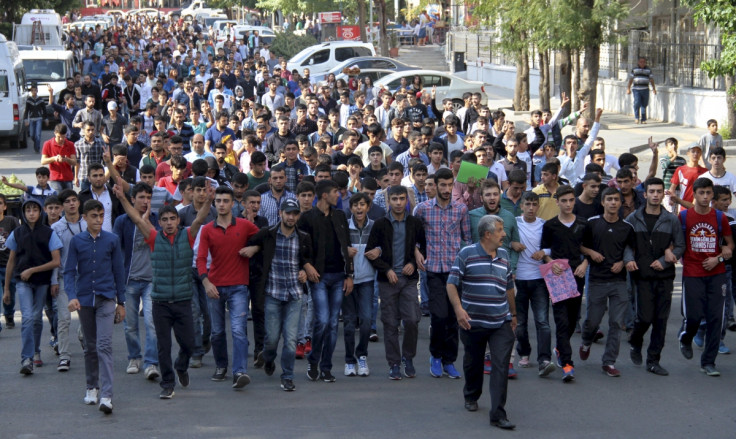Turkey suspects Isis hand in Ankara twin blasts as 3-day mourning declared

Turkish authorities suspect that Islamic State (Isis) militants could be behind the twin blasts in Ankara, as the government has declares a three-day mourning. The blasts had killed 95 people and left nearly 250 others injured, on Saturday 10 October.
Prime Minister Ahmet Davutoglu has pointed fingers at Isis extremist and the Kurdistan Workers' Party (PKK) for the attack on the peace rally. He told reporters the initial reports suggest that both the explosions were set off by suicide bombers.
"For some time, we have been receiving intelligence information based from some PKK and Daesh [Arabic name for IS] statements that certain suicide attackers would be sent to Turkey... and that through these attackers chaos would be created in Turkey," he said. "The PKK or Daesh could emerge (as culprits) of today's terror event." He also promised the perpetrators of the bombing would be caught and punished.
"A terrorist is a terrorist. Whoever carried out an act of terror has committed a crime against humanity. We are encountering one of the most painful acts of terrorism in our republic's history," added the Turkish premier.
Meanwhile, the country is entering into three days of mourning to mark the deadliest reported attack in Turkey. Despite government efforts in handling the situation, scores of protesters took to streets, in rallying against the Ankara administration. More than 10,000 protesters turned out for demonstrations outside Ankara's hospitals and other key sites in the capital.
Some were holding placards that read: "Murderer Erdogan" and "The state is a killer". President Recep Tayyip Erdogan has been accused of increasing tensions with the Kurds. Protests also broke out in other cities including Istanbul, Batman, and Diyarbakir.
© Copyright IBTimes 2025. All rights reserved.






















